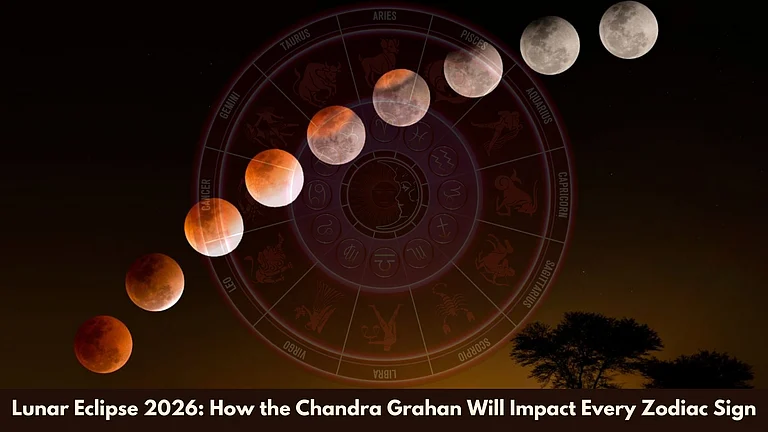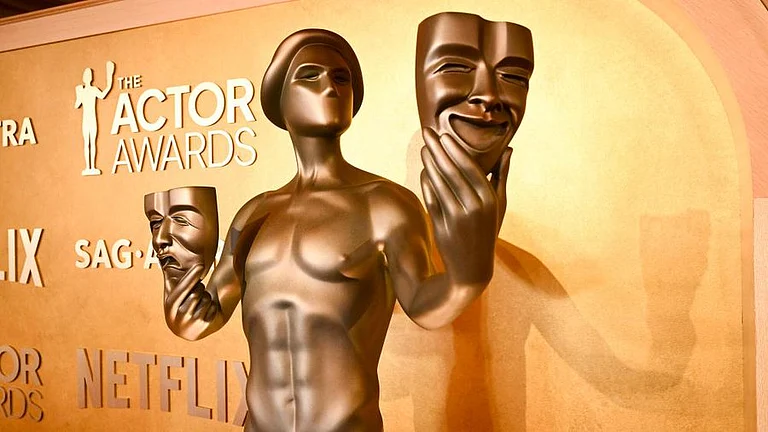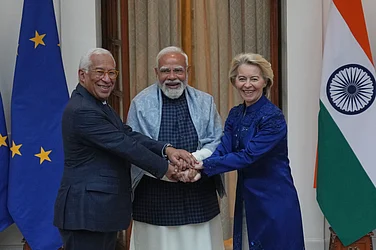The recent controversy over the Dalai Lama has given China an opportunity to hit back at the Tibetan spiritual leader. Chinese have also reignited their past propaganda against the theocratic government he headed in Lhasa. Though there was no official reaction from Beijing, the video clip of the Dalai Lama asking a young boy to suck his tongue generated a lot of heat on the internet and was flooded by pro-Chinese voices in the social media.
The Dalai Lama was attacked for purported inappropriate behaviour, but several Chinese users also brought up the Communist Party line about the Dalai Lama’s treatment of Tibetans as serfs. Official Chinese documentaries on Tibet show Lhasa’s erstwhile rulers as tyrants who punished wrongdoers by throwing them into dungeons filled with poisonous scorpions and snakes attached to the Potala Palace complex, the residence and seat of administration in Lhasa.
Communist China invaded Tibet in 1950. Resentment across the country led to the Tibetan uprising of 1959. This was swiftly and brutally crushed by the People’s Liberation Army (PLA), forcing the Dalai Lama to flee to India. China claims that it freed the people of Tibet from the tyranny of the Lamas. Tibetans think otherwise and continue to revere the Dalai Lama, who now lives in Dharamshala, Himachal Pradesh. This old propaganda of freeing Tibetans from slavery was echoed in the social media after the current controversy surfaced.
The Dalai Lama has since apologised. While many non-Tibetans have criticised the action of the spiritual leader and have raised the larger question of godmen as sexual predators of unsuspecting children, the majority of Tibetans have stoutly defended their spiritual leader. The controversy is unlikely to make a dent on his image among his followers in Tibet or elsewhere.
To his followers, the Dalai Lama remains the most prominent symbol of Tibetan resistance. His presence calls into question Chinese legitimacy over Tibet and exposes China to accusations of human rights violations. The legitimacy of China’s hold over Tibet would perhaps not have become an international concern without the Dalai Lama relentlessly flagging it around the world. Little wonder then that China regards him as an enemy, and an agent of the United States and the Western world. The strong emotion he evokes is a measure of China’s insecurity over the Dalai Lama.
Not that the spiritual leader has been able to deliver much on the ground. The Dalai Lama, an astute politician, has changed his stand on full independence for Tibet that he had advocated from 1961 to 1974. Now he talks of the “middle path”, by which he means that Tibet remains with China, but with freedom for Tibetans to practice their religion and way of life. China, however, is in no mood to grant even this limited concession. So, is the Dalai Lama finally just a toothless tiger? Not so, say experts.
“The Dalai Lama has played an important role in keeping the Tibetan question on the global stage. Yes, there has been little tangible accomplishment, especially on the broader agenda of securing Tibet's cultural autonomy in China,” says historian Srinath Raghavan. Now with his advancing age ―he is 87-years― the focus is on what happens after him.
“He knows that his succession will be an important moment. Not just that the next Dalai Lama has big shoes to fill, but even procedurally. Beijing will try, as they did with Panchen Lama, to announce their own Dalai Lama. The Dalai Lama has sought to confound them by saying that his successor could be found outside Tibet, could be a non-Tibetan, or a woman. So, this is going to be a tricky moment not only for the Tibetan community, but also for China and India,” says Raghavan.
China’s move
China is already making preparations to install its own official Dalai Lama. But the official stamp will, in no way, make the next man acceptable to the people of Tibet or thousands of Tibetans who owe their allegiance to him.
India is unlikely to jump in the fray, but will wait and see how the situation pans out in the future. New Delhi is closely watching developments. There are also whispers about a Mongolian monk being a contender with the blessings of the Dalai Lama. But nobody is certain if this is just a rumour or there is more to it than meets the eye.
“If anyone has kept the Tibet question alive for 63 years, it is His Holiness the 14th Dalai Lama. That too from exile outside Tibet. That’s why the Chinese Communists hate him, but they also respect his achievement and this is a big deal,” says Gautam Bambawale, India’s former ambassador to China.
“It is a big deal because the Tibet issue is still open in international politics. How the situation changes hence forward, let’s wait and see. India will not ‘use’ the Dalai Lama, but we shall work with him for our national interests. It will be a cooperative relationship. Hence, the 14th Dalai Lama has stellar achievements given the cards he was dealt,” says the former envoy, who tracks China closely.
If the Tibet question is still open, as Bambawale says, the next Lama to take on the mantle will have a tough job in tackling the competing pulls and pressures of international diplomacy. As China is seen as a major threat to US hegemony, the Americans could also muddy the waters to embarrass the Chinese. But there are those who believe that the rest of the world is wary of playing the Tibet card and would rather not antagonise an economic giant like China.
“There was a time when foreign powers opposed to China would score political points by welcoming the Lama to their countries despite protests from Beijing. However, as China is now much more powerful than it was in the past, there is a reluctance to use the Dalai Lama politically. In the last couple of years, there has been a greater thrust on his religious teachings and while he continues to address the international community, it is more as a spiritual leader,” says Alka Acharya, a professor of Chinese Studies at Jawaharlal Nehru University (JNU).



























